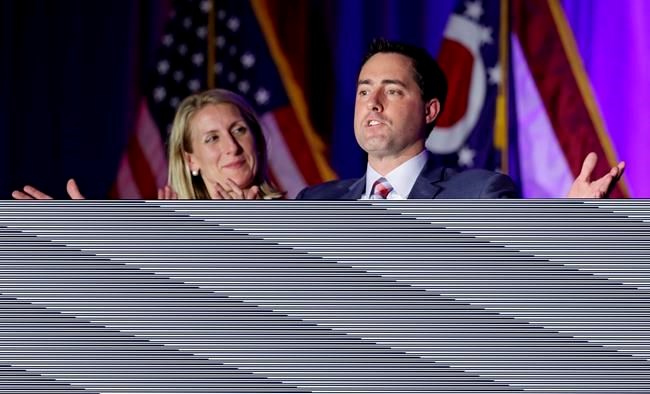COLUMBUS, Ohio — A coalition of voter advocacy groups dropped a lawsuit Friday against Ohio's strict rule limiting ballot drop boxes to one location per county, a coup for President Donald Trump's reelection campaign in a key battleground state less than two weeks before the election. The A. Philip Randolph Institute, the League of Women Voters of Ohio and the American Civil Liberties Union of Ohio made the decision after the federal appellate court in Cincinnati set a timetable last week that pushed further activity in the case past Election Day.
Freda Levenson, the Ohio ACLU's legal director, said that would “obviously be too late.”
“As a practical matter, instead of continuing this battle, the plaintiffs determined to focus their efforts on the many other areas likely to require litigation to uphold voters’ rights in this election," she said in an emailed statement.
The lawsuit's end was also a win for Republican Secretary of State Frank LaRose, who issued the directive limiting drop box locations.
“Secretary LaRose is pleased that Ohio voters can continue on with the business of participating in the most secure and accessible election in Ohio’s history,” spokesperson Maggie Sheehan said in a statement.
Six major Ohio cities fought alongside the voting rights groups to expand access to off-site ballot drop-off locations: Columbus, Cleveland, Cincinnati, Akron, Dayton and Toledo. The option has grown in popularity this year amid the coronavirus pandemic and concerns about the reliability of voting by mail.
Before the Trump campaign got involved, LaRose had said repeatedly that he would support allowing additional drop boxes if it was clear he had the legal authority to do so. He never followed through, though, despite courts at the county, state and federal level affirming he had the power. All criticized the order as an unreasonable impediment on voters, though only two of the three blocked it.
LaRose did issue a “clarification” to his initial one-box-per-county order, allowing counties to set up drop boxes “outside” their offices but, he said, still on site.
The two versions of his order have been blocked and unblocked numerous times as the legal dispute made its way through the courts.
Most recently, it was in the U.S. 6th Circuit Court of Appeals in Cincinnati, which set a briefing schedule last week that assured nothing would be decided before the Nov. 3 election. The court had requested the state's brief on Nov. 24 and the voting rights coalition's reply on Dec. 24, after reiterating its concern about changing election rules after voting had already begun.
Julie Carr Smyth, The Associated Press



